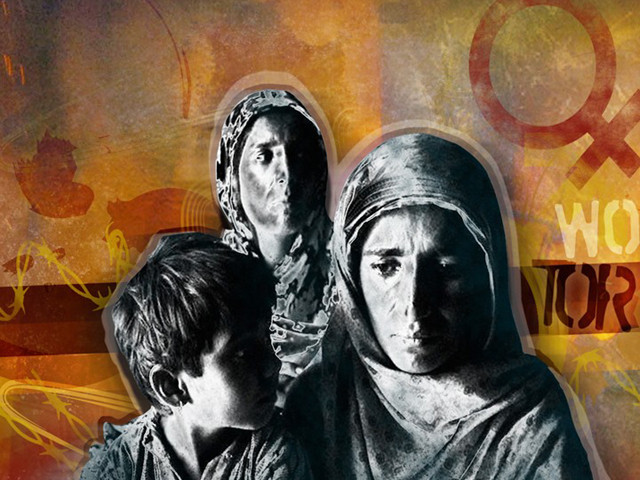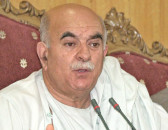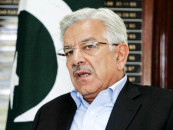In the name of honour
Only 10 per cent of people working in law-enforcement agencies know about the Honour Killing Law in Pakistan.

The survey, conducted in collaboration with National Rural Support Programme (NRSP) and Rozen (an NGO), also found that zero per cent of advocates practicing in the country were aware of the law.
These findings will serve as a baseline for “End Honour Crime” project that has been initiated with the support of UN Trust Fund. The project is being implemented in the districts of Rajan Pur, Punjab and Mir Pur Khas, Sindh, and it aims to assess and develop the capacity of public and private organisations and raise awareness among the local communities about laws and women rights.
Results of this survey were disclosed in a national interface organised in Islamabad on Tuesday. Yasmeen Rehman (advisor to the Prime Minister on Women development), Anis Haroon (chairperson NCSW), Tahira Abdullah (renowned social activist) and representatives of civil societies attended the meeting.
The participants expressed grave concerns over the dismal findings of the survey. They urged the government to include all laws related to women in the curriculum of the Police Academy.
The honour killing law was amended back in 2004, when the lawmakers increased the maximum jail term for a person convicted in honour-related crime from seven to 10 years. The amended law made it mandatory for senior police officials to investigate honour killings. The law was also changed so that a woman accused of adultery could only be arrested on orders of a judge.
The participants also criticised the media for “not doing enough” and said that various television channels should air shows that promote and create awareness on women rights.
Anis Haroon, chairperson NCSW, said that civil society had been presenting recommendations to reform women discriminatory laws since “a long time but government machineries were the greatest obstacles in the way”.
“I urge female parliamentarians to take it upon themselves and push for our demands,” she said during her speech. “Pakistan is the only country in the 21st century where crimes against women are rising in numbers,” she added.
Haroon blamed the violence against women on the deeply-rooted patriarchal attitudes and the feudal system prevalent in the country. “The weak judicial system and weak law enforcing institutions are paving the way for such crimes,” she said.
She also urged the Ministry of Women Development to ask Ministry of Religious Affairs to direct mosque imams to talk of women rights and to condemn violence against women in their Friday sermons.
Yasmeen Rehman, advisor to the PM, emphasised the importance of public-private partnership in the fight for women rights.
“Media also has a very important role in raising the demand for women-friendly legislation. Social mobilization can play pivotal role in reforming the law,” Rehman said.
She added that all the crimes committed against women need to be documented properly and should be referred to provincial Inspector Generals of police for follow up and appropriate actions. “We need to establish nationwide mechanism to deal with violence against women and to provide the victim women with due support and facilities.”
Published in The Express Tribune August 12th, 2010.



















COMMENTS
Comments are moderated and generally will be posted if they are on-topic and not abusive.
For more information, please see our Comments FAQ